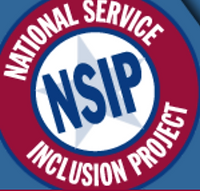Self-Advocacy Partners, Leaders & Resources
This list proves how many state and national agencies exist to support the rights and needs of people with developmental disabilities and the self-advocacy movement. This list is meant to serve as a resource for self-advocates when they are looking for more information on state and national disability issues. For a list of supports on specific self-advocacy issues, see our Action page.
State Agencies & Organizations
The purpose of the Florida Developmental Disabilities Council is to engage in advocacy, capacity building, and systemic change activities that contribute to a coordinated, consumer- and family-centered system of community services and individualized supports that enable individuals with developmental disabilities to exercise self-determination, be independent, be productive, and be integrated and included in all facets of community life. FL SAND and FSACentral are FDDC-funded projects.
The Florida Center for Inclusive Communities (FCIC) at the University of South Florida was established in October 2005. Through leadership in research and evaluation, theory, policy, capacity building, and practice, the FCIC is committed to developing a range of supports and services for persons with disabilities in the areas of Community Supports, Early Childhood, Education, Employment, Health, and Interdisciplinary Training.
The Mailman Center for Child Development is an academic center at the University of Miami Miller School of Medicine that addresses concerns of individuals with developmental disabilities and children with special health care needs through research, clinical service, training, and advocacy. The Mailman Center has several leadership training opportunities available for self-advocates and people with disabilities, all of which are part of its Leadership Education in Neurodevelopmental Disabilities (LEND) training program.
The Agency for Persons with Disabilities is the state agency specifically tasked with serving the needs of Floridians with developmental disabilities. APD works in partnership with local communities and private providers. APD supports the self-advocacy movement in Florida and provides resources for self-advocates.
The Florida Legislature created the Family Care Councils in 1993 in each service area of the Agency for Persons with Disabilities to advise the agency, develop a plan for the delivery of family support services within the local areas, and monitor the implementation and effectiveness of services and supports provided under the plan.
The FAAST mission is to improve the quality of life for all Floridians with disabilities through advocacy and awareness activities that increase access to and acquisition of assistive services and technology.
The Arc of Florida is a nonprofit organization whose mission is to improve the lives of persons with intellectual and developmental disabilities. The Arc of Florida works with local, state, and national partners and advocates for people with intellectual disabilities, autism, spina bifida, cerebral palsy (CP), prader-willi syndrome, and other developmental disabilities to be fully included in all aspects of their community.
National Agencies & Organizations
Self-Advocates Becoming Empowered (SABE) is the primary national organization that organizes and supports state advocacy networks and groups. FL SAND is a SABE member and participates in its programs and planning.

TASH is an international leader in disability advocacy. Founded in 1975, TASH advocates for human rights and inclusion for people with significant disabilities and support needs – those most vulnerable to segregation, abuse, neglect and institutionalization. TASH works to advance inclusive communities through advocacy, research, professional development, policy, and information and resources for parents, families and self-advocates.
NCIL advances independent living and the rights of people with disabilities. NCIL envisions a world in which people with disabilities are valued equally and participate fully.
The Independent Living Research Utilization program is a national center for information, training, research, and technical assistance in independent living. Self-advocates can link to their state and local Centers for Independent Living from this page.
NACDD is the national association for the 56 Councils on Developmental Disabilities (DD Councils) across the United States and its territories. The DD Councils receive federal funding to support programs that promote self-determination, integration and inclusion for all people in the United States with developmental disabilities.They provide technical assistance to all DD Councils, advocate for the national public policy agenda, advocate for DD Councils’ appropriations in Congress, and convene DD Councils for leadership and development training.
AIDD is the federal agency dedicated to ensuring that people with disabilities have opportunities to make their own choices, contribute to society, have supports to live independently, and live free of abuse, neglect, and exploitation. In each state and territory, AIDD grantees form a developmental disabilities network, or DD Network, made up of State Councils on Developmental Disabilities; State Protection and Advocacy Systems; and University Centers for Excellence in Developmental Disabilities.
The National Disability Rights Network (NDRN) is the nonprofit membership organization for the federally mandated Protection and Advocacy (P&A) Systems and the Client Assistance Programs (CAP) for individuals with disabilities. P&As and CAPs work to improve the lives of people with disabilities by guarding against abuse; advocating for basic rights; and ensuring accountability in health care, education, employment, housing, transportation, and within the juvenile and criminal justice systems.
NCDD provides technical assistance and information to anyone needing information about disability and higher education, including college students, their families, faculty, college administrators and staff, disability services professionals, researchers, and policymakers. NCDD collects information and does research about disability services at campuses in the United States, sharing findings with the public.



























